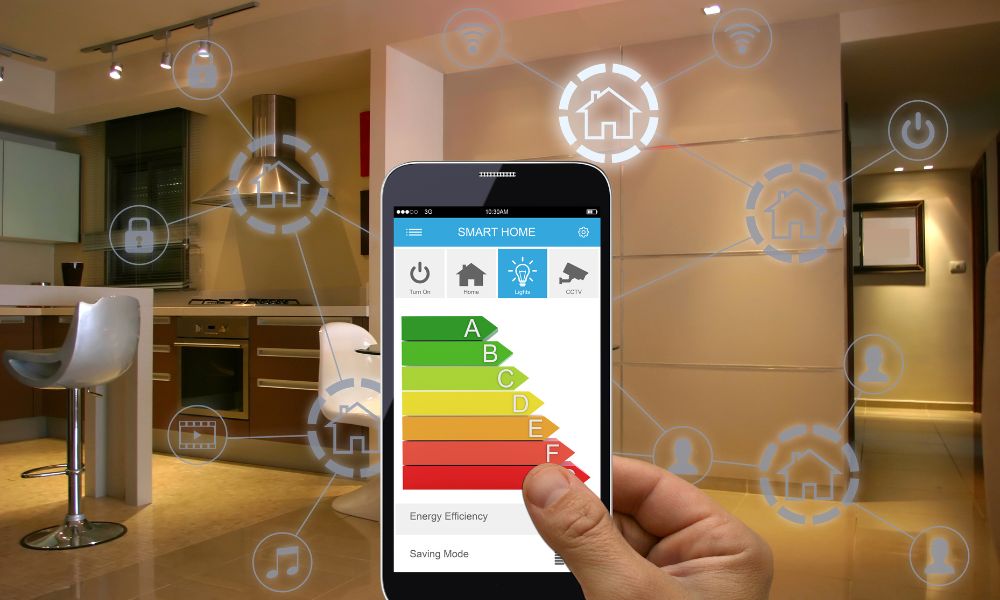In today’s world, the concept of smart homes is no longer a futuristic idea but a present reality. With advancements in technology, homeowners are now faced with a crucial decision: should they opt for voice control or app control to manage their smart homes? This article delves into the voice vs app control in smart homes debate, exploring the pros and cons of each to help you make an informed choice.

Understanding Smart Home Technology
Before diving into the specifics of voice and app control, its essential to understand what constitutes a smart home. Smart homes are equipped with devices that can be controlled remotely, offering convenience, security, and energy efficiency. These devices range from smart carbon monoxide detectors to smart gadgets for travelers.
The Rise of Voice Control
Voice-controlled devices like Amazon’s Alexa, Google Assistant, and Apple’s Siri have revolutionized how users interact with their homes. Voice control offers a hands-free experience, allowing users to execute commands simply by speaking.
Benefits of Voice Control
- Convenience: With voice commands, you can control your home while cooking, cleaning, or even relaxing on the couch.
- Accessibility: Voice control is particularly beneficial for individuals with mobility challenges.
- Integration: Many smart devices seamlessly integrate with voice assistants, providing a unified control interface.
Challenges of Voice Control
- Privacy Concerns: Always-on microphones raise concerns about privacy and data security.
- Accuracy: Voice recognition might struggle with accents, background noise, or similar-sounding words.
The Case for App Control
On the other hand, app control offers a visual and tactile way to manage smart home devices. Apps provide detailed interfaces, allowing users to customize settings and monitor device status.
Advantages of App Control
- Detailed Control: Apps often offer more in-depth settings and options compared to voice control.
- Visual Feedback: Users can see the status of devices and receive instant feedback.
- Remote Access: Manage your home from anywhere in the world, as long as you have internet access.
Drawbacks of App Control
- Dependency on Devices: App control requires a smartphone or tablet, which might not always be convenient.
- User Interface Complexity: Some apps can be complex, making them challenging for less tech-savvy users.
Choosing the Right Control Method for Your Home
The decision between voice and app control ultimately depends on personal preferences and lifestyle. For those who value hands-free convenience, voice control might be the best choice. However, if detailed customization and remote access are priorities, app control could be more suitable.
Combining Voice and App Control
Many homeowners find that a combination of both methods offers the best of both worlds. For instance, voice control can be used for quick tasks, while the app serves for more detailed management.
Integration with Smart Home Systems
Integrating both voice and app control into a single smart home system can enhance user experience. Platforms like Samsung SmartThings and Apple’s HomeKit support both control methods, providing flexibility and ease of use.
Security Considerations
Regardless of the chosen method, ensuring the security of your smart home system is crucial. Regular updates and strong passwords can protect against potential threats.
Future Trends in Smart Home Control
The future of smart home control lies in seamless integration and intuitive interfaces. As technology advances, we can expect more personalized and intelligent systems that anticipate user needs.
For more insights into smart home automation, you can explore [these ways to automate your smart home experience](https://www.nar.realtor/magazine/real-estate-news/technology/23-ways-to-automate-your-smart-home-experience) for a comprehensive understanding of how to enhance your home.
Conclusion
In the debate of voice vs app control in smart homes, there is no one-size-fits-all answer. The choice depends on individual needs and preferences. By understanding the strengths and limitations of each method, you can make an informed decision that best suits your lifestyle.

FAQs
What is the main difference between voice and app control?
Voice control offers hands-free operation, while app control provides detailed, visual management of smart home devices.
Can I use both voice and app control in my smart home?
Yes, many systems allow for both methods, providing flexibility and convenience.
Are there security concerns with voice control?
Privacy is a concern with voice control due to always-on microphones, but following security best practices can mitigate risks.






